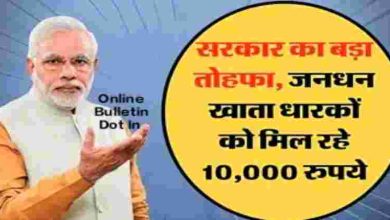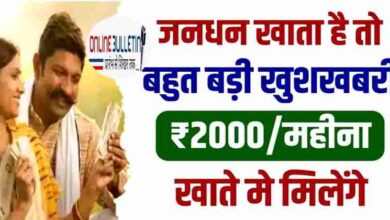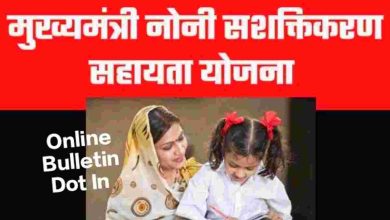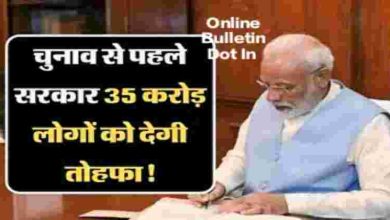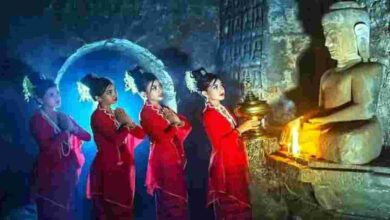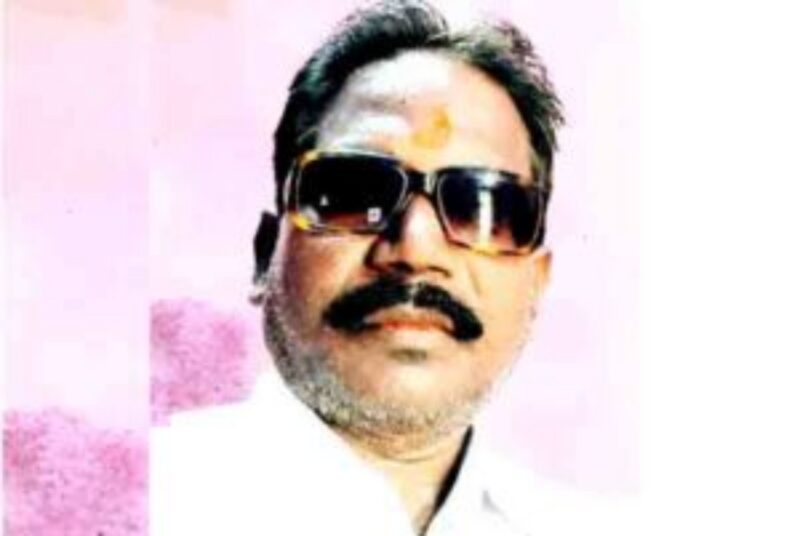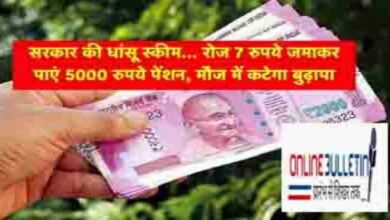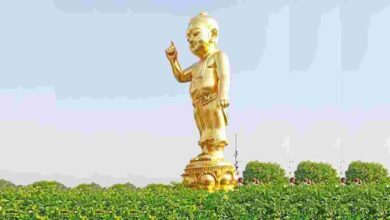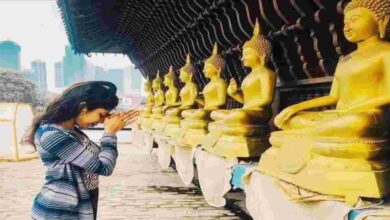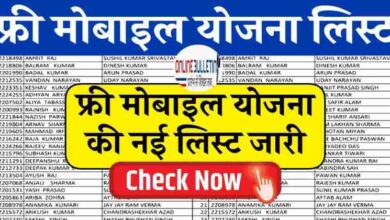आज की दलित वैचारिकी का द्योतक ‘शोषण के विरूद्घ’ aaj kee dalit vaichaarikee ka dyotak ‘shoshan ke viroodgh’
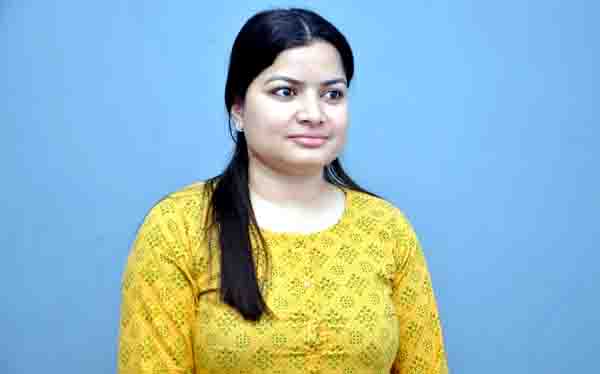
©डॉ. ममता
परिचय– गढ़वाल, उत्तराखंड
आधुनिक साहित्य में दलित कविताएं अपनी सशक्त पहचान बना चुकी हैं। एक कवि के रूप में दलित साहित्यकार अधिक गतिशील हैं। साहित्य की सबसे प्रभावी शैली के रूप में कविता पहचानी गई तथा अपने शब्दों से उठकर वह एक आंदोलन में बदली। दलित कवि लगातार समसामयिक घटनाओं पर लिख और बोल रहें हैं। दलित कविता का दौर संत साहित्य से माना जाता है परन्तु इसके पीछे की चिंतन प्रक्रिया बुद्ध की है।
आधुनिक दलित विमर्श में दलितों पर ही सवाल खड़े किए जाते हैं कि वह स्वयं जातिवादी हैं हालांकि अम्बेडकरवादी वैचारिकी से पोषित दलित साहित्य कभी भी इस जातिवादी रवैये को स्वीकार नहीं करता। दलित कविताएं छद्म दलित साहित्यकारों के जाल से बहुजनों को सजग करने का काम भी कर रहीं हैं किन्तु एक व्यवस्थित आंदोलन को कमजोर करने का काम भी चंद दलित साहित्यकार कर रहें हैं, जिसके लिए बुद्ध के दर्शन और अम्बेडकर के चिंतन को सही से जानना आवश्यक है।
समसामयिक घटना क्रमों का देश-समाज के लोगों पर पड़ते प्रभाव की चिंता दलित साहित्यकार कर रहें हैं। इसी क्रम में शोषण के विरुद्ध कविता संग्रह एक पहल है जो शोषणकारी ताकतों के सामने अम्बेडकरवाद का झंडा थामे हुए हैं।
आलोचक और राष्ट्रकवि रामधारी सिंह ‘दिनकर’ संस्कृत के ज्ञाता थे । वे संस्कृत साहित्य के विषय में लिखते हैं- “संस्कृत साहित्य में विद्रोह की परंपरा नहीं थी। भारत में विद्रोह के पहले बीज गौतम बुद्ध ने गिराए और वे अंकुरित चाहे जब भी हो, पल्लवित और पुष्पित वे तब हुए, जब सिद्ध-साधुओं का समय आया।”
दलित साहित्य की परंपरा भी संस्कृत से इत्तर है तथा यहाँ पर बुद्ध के चिंतन के साथ संतों की सामाजिक विद्रोह की परंपरा का ही अनुसरण दिखता है। शोषण के विरुद्ध काव्य संग्रह , हाशिये के समाज के अधिकारों के प्रति अपनी आवाज़ बुलंद करता है, जो आज दलित साहित्य की पहचान बन गई है।
वर्तमान समाज में राजनीतिक क्रूरता लगातार देखी जा रही है इसके बावजूद कवियों ने अपना आत्मविश्वास बचाकर कवि कर्म निभाया है। समाज में घटित घटनाएं कवि की कविता के लिए प्रेरणा बनती हैं तो कभी कवि का साहित्यिक कर्म एक सुंदर समाज के निर्माण में अपनी अहम भूमिका का निर्वहन करता है।
मैनेजर पांडे अपने लेख ‘समाज, जनता और साहित्य का इतिहास’ में लिखते हैं- “इतिहास में कभी रचनाओं की सामाजिकता उनकी साहित्यिकता को निर्धारित करती है और कभी साहित्यिकता सामाजिकता को।” जहां एक ओर संत कवियों ने अपनी कविताओं में सामान्य जनता में आत्मगौरव का भाव जगाने का काम किया वही काम दलित साहित्यकार लगातार कर रहें हैं।
काव्य संग्रह में सबसे पहले कविताएं कवि ‘संतोष पटेल’ की है। कवि संतोष पटेल की चुनिंदा कविताएं इस संग्रह में शामिल हैं । ‘कवि हूँ मैं’, कविता, कवि कर्म की याद दिलाती है। 21वीं सदी के मनुष्य की पीड़ा का एहसास कवि को है तथा उसे ही कवि ने अपनी कविता के केन्द्र में रखा है। ‘हाँ मैं भक्त हूँ’, कविता में कवि ने स्वयं को ‘भक्त’ की उपमा दी है जो संत कवियों की वैचारिकी से प्रभावित है। जहाँ कवि श्रम की महत्ता की बात करता हुआ स्वयं को श्रमिक वर्ग का भक्त कहता है।
कवि ने यहाँ कर्मठशील व्यक्तित्व को अपना आदर्श बनाया है। वह यहाँ दलित-शोषितों को लगातार लिखने के लिए प्रेरित कर रहें हैं साथ ही वे दमित जातियों में क्रांति का संचार करते हुए अपने को किसी से कम ना आंकने और अपने संघर्ष के लिए निरंतर हौंसला रखने की प्रेरणा देते हैं। ‘कवि हूँ मैं’ में कवि संतोष पटेल लिखते हैं- “मेरी लेखनी चलती है/ फासिस्टों की षड्यंत्र पर/ तानाशाहों और अतातिईयों के प्रपंच पर/ मैं रुकता नहीं/ मैं झुकता नहीं/ क्योंकि मैं उपज हूँ/ इंकलाब के गान की/ और कविता है/ शत-प्रतिशत ईमान की।”
इस संग्रह में कवि संतोष पटेल की चुनिंदा प्रतिनिधि कविताएं शामिल हैं जो उनके आक्रामक और विद्रोही स्वर को बयाँ करती है। कविताएं भारतीय न्यायिक व्यवस्था पर कटाक्ष कर प्रश्न खड़े करती है तथा न्याय के लिए उठाए गए फूलन देवी के कदम का समर्थन भी करती है। संतोष पटेल की कविताओं में आक्रोश, ध्वंस, और बैचेनी है परन्तु वह किसी अंतहीन द्वंद्व में नहीं फंसते क्योंकि उनकी दृष्टि स्पष्ट और दूरदर्शी है। दलित कहानीकार, कवि, आलोचक और एक समाज सामाजिक कार्यकर्त्ता के रूप में दलित समाज को अपना सर्वस्व जीवन देने वाले स्वर्गीय ओमप्रकाश वाल्मीकि ने लगातार दलित कविताओं पर लिखा है।
वे कहते हैं- “मेरे लिए कविता सिर्फ शब्दों का खेल नहीं है। मेरे जीवन का मिशन है। एक आंदोलन है।” कवि इसी समतावादी वैचारिकी के साथ काव्य की रचना कर रहें हैं। रंगभेद के अन्याय को उजागर करते-करते कविता भारतीय जातिवाद के कटुरूप को उजागर करती है तथा अंत में विश्व के समाज सुधारकों के प्रयत्नों का साधुवाद करते हुए बदलाव की उम्मीद से नई सुबह की राह देखती है।
समाज में परिवर्तन आवश्यक है ताकि मनुष्य बनी बनाई परिपाटी से इतर अपना भविष्य देख सके। यह कथन उन शोषित तबके के समुदायों के लिए अति आवश्यक जान पड़ता है जो वर्षों से शोषण का शिकार समाज की असमान व्यवस्था के कारण होते रहें हैं। जिसमें जन्म आधारित जाति व्यवस्था सबसे प्रमुख है। कवि ‘डॉ आर.एस .राव’ अपनी कविता ‘मन ही मन’ तथा ‘नारी का शोषण’ में जातिवाद तथा उससे जुड़ी दलितों की दयनीय दशा पर रोष प्रकट करते हैं।
‘वही हाथ न आए’ कविता सरकारी नीतियों और सत्ता पक्ष की नाकामियों की फेहरिशस्त लगाती है जिसमें विकास का प्रश्न धुंधला गया है। मोहभंग की स्थिति से कहीं आगे निकलकर कवि ने सत्ता परिवर्तन की लौ जला रखी है परन्तु तानाशाही से जूझते हुए कई अन्य चुनौतियाँ भी कवि के सामने खड़ी है।
भारत एक ऐसा देश है जहाँ पग-पग पर भाषा और पानी के स्वाद में बदलाव देखा जाता है साथ ही यहाँ पर सांस्कृतिक रूप से लोगों के जीवन- व्यवहार में भी फर्क है। उत्तर से लेकर दक्षिण तक जो नहीं बदला है, वह है जातिवाद। दलित साहित्यकारों के सामने वर्ण-व्यवस्था सबसे गंभीर प्रश्न है। कवि ‘हरीश पांडल’ अपनी कविता ‘जुनून सर पर उम्मीद सब पर’ में बदलते दलित कविता के विमर्श को दिखाते हैं जिसमें दलित रचनाकार अपने अतीत के साथ भविष्य की चिंता से चिंतित है। बेहतर कल की संभावनाओं को कवि ने खोजने का प्रयास किया है। सम्मानपूर्ण जीवन जीने का स्वप्न देखने की उम्मीद ये कविताएं पैदा करती हैं।
‘बीमारी’ कविता दलितों और सवर्णों दोनों से प्रश्न करती है। कवि की लगभग सभी रचनाएं जातिवाद तथा उससे उपजी शोषण को सामने रखती है। कविता देश, समाज की वास्तविकताओं से परिचय कराती है, कविता की केन्द्रीय चिंता दलित की स्थिति में सुधार लाना तथा अन्याय के विरुद्ध आवाज़ खड़ी करने के लिए सभी को जाग्रत करना है। यह कविता देश, समाज की वास्तविकताओं से परिचय कराती है।
दलित अपने निजी हितों को छोड़ कर अगर समाज के हित को प्रमुखता देते हैं तो वह अम्बेडकर के दिखाए मार्ग का अनुसरण करते हैं। अम्बेडकर के विचार दलित साहित्यकारों को उनकी लड़ाई लड़ने के लिए एक सशक्त मार्ग प्रदान करते हैं। डॉ अम्बेडकर कहते हैं- “जब-जब मेरे निजी हितों और कुल मिलाकर सारे देश के हितों के बीच टकराव हुआ है मैंने निजी हितों के बजाय देश के हितों को ही ध्यान में रखा है।”
कवि ‘डॉ शंकर लाल ‘अलीगढ़’ की कविता ‘मजदूर’, श्रमिक वर्ग के हितों के बारे में सोचती है तथा समाज के हित को अपनी कविताओं के केन्द्र में रखकर कवि ने अपने कवि कर्म को निभाया है। ‘बीमार नहीं हूँ’ कविता, कवि की व्यंग्यात्मक रचना है, जो छद्म समाज सुधारकों की तरफ इशारा करती है। ‘ज़मीर की तलाश’ कविता क्रांति और ओज की कविता है। ‘घाव का दर्द’ कविता दलितों को सचेत करने का काम करती है तथा अतीत की गलतियों (शोषण को सहना) को पुन: दोहराने से रोकने के लिए सजग भी करती है।
‘मनुवाद की पोल’ भी इसी तरह की चेतनशील कविता है जो पौराणिक घटनाक्रमों को आधार बनाकर अपने इतिहास और भविष्य के प्रति आगाह करती है। ‘पुस्तक की हुंकार’ कविता, इस संग्रह की प्रतिनिधि कविता है जो संग्रह की सभी कविताओं के कथ्य, कलेवर और आक्रोश की सूचक है। दलित कवियों की कविताओं में नाटकीयता नहीं है। जीवन की कुरूपता को भी वह उसी नग्नता के साथ प्रस्तुत करने का साहस दिखाते है परन्तु कथ्य और शिल्प में एक जैसी समानताओं के कारण कविता में उबासियत आने लगती है जिससे दलित कवियों को बचना चाहिए।
दलित समाज सुधारकों में पेरियार.ई.वी.रामास्वामी का नाम बड़े सम्मान से लिया जाता है। उनके अनुसार – “भारत में महिलाएं हर क्षेत्र में अस्पृश्यों से भी अधिक उत्पीड़न, अपमान और दासता झेलती हैं। चूंकि हम इस बात को समझ नहीं पाते किस्त्री की पराधीनता सामाजिक विनाश की ओर ले जाती है। ” पेरियार ने लगातार स्त्रियों की स्वतंत्रता की बात की न कि हिंदू धार्मिक ग्रंथों की तरह उसे पति के अधीन रहने के सलाह दी।
हिंदू धर्म में व्यापत कुरूतियों का वे लगातार खंडन करते रहे तथा डॉ. अम्बेडकर द्वारा हिंदू धर्म त्याग कर बौद्ध धर्म अपनाने का स्वागत भी किया। पेरियार ने लगातार स्त्री शिक्षा और उन्हें संपत्ति पर अधिकार दिए जाने की वकालत की। कवयित्री जालेश्वरी गेंदले की ‘आत्मशक्ति’, और’ प्रथा’ कविताएं एक स्त्री के मन की पीड़ा को सामने रखती है जिसमें उसके साथ हो रहे तिहरे शोषण की अभिव्यक्ति है। एक स्त्री अपने परिवार से लड़कर, अपनी आस्थाओं, संस्कारों और सामाजिक रूढ़ियों को तोड़कर अपने लिए एक उन्मुक्त गगन की आस रखती है जिसमें स्त्री समानता के साथ, उसे मनुष्य समझे जाने का संघर्ष दिखता है।
पेरियार को अधिकतर लोग नास्तिक और ईश्वर का विरोधी मानते हैं जबकि उनके प्रगतिशील विचार धर्म, जाति, संप्रदाय, लिंग और रंग के आधार पर असमान व्यवहार और शोषण का विरोध करते हैं। पेरियार के विचारों को अपनी कविताओं की प्रेरणा बनाते हुए कविता संग्रह की कवयित्रियों ने लगातार इस विषय पर लिखकर यह बताने का प्रयास किया है कि आज भी स्त्री स्वतंत्रता का मुद्दा प्रासंगिक है। इसी कड़ी में इंदु रवि, प्रीति बौद्ध और प्रज्ञा अम्बेडकर भी उन कवयित्रियों में शामिल हैं जो पेरियार और अम्बेडकर की वैचारिकी को लेकर दलित स्त्री की पीड़ा को बयाँ करते हुए उसके अधिकारों की समाज के हर वर्ग से करती है।
स्त्री पर होने वाले शोषण को कवयित्रियों ने अपनी कविताओं में प्रस्तुत किया। कवयित्री ‘इंदु रवि’ की ‘मानवता’, ‘परिवर्तन’ और ‘लिंग का भेद’ जैसी कविताएं स्त्री शोषण को ही बयाँ करती हैं परन्तु यह बहुत ही हल्की रचनाएं हैं जो मन में किसी भी प्रकार की उथलपुथल नहीं मचा पाती तथा एक ही राग का आलग लगती हैं। उनकी ‘त्रिरत्न’ कविता छद्म बुद्धिजीवियों के दोगले व्यवहार को उजागर करती है परन्तु वह इतनी सशक्त कविता नही है जो दलित साहित्य के विस्तार और उसके कद को बढाए। कविता में गतिशीलता के साथ नए प्रतीकों का आना उसमें संवेदना का विकास करता है जो इन कविताओं से नदारद दिखता है।
दलित कविता में स्त्रियाँ भी लगातार अपनी उपस्थिति दर्ज कर रहीं हैं, इस संग्रह में उनकी चंद प्रतिनिधि कविताएं हैं जो विषय की विविधता लिए हुए है। कवयित्री ‘प्रीति बौद्ध’ अपनी कविता ‘मुझे अच्छा नहीं लगता’ में वोट के अधिकार को एक ऐसा सशक्त हथियार के रूप में प्रस्तुत करती हैं। वे लिखती हैं- “चेता जाओ मनुज मक्कारो से/ ला बौद्धिकता अल्फाजों से/ समय रहते डर मीठे जुल्मों से/ नादानी और भोलापन मतदाताओं का/ मुझे अच्छा नहीं लगता” कवयित्री ने भारतीय राजनीति के स्याह रूप को उजागर किया है जिसमें गरीब का वोट हथियाने के लिए राजनेता विभिन्न हथकंडो को अपनाता है जिसमें केवल और केवल गरीब जनता का ही शोषण होता है।
उनकी अन्य रचनाएं भी शोषण के विरुद्ध एक नये आंदोलन का उद्घोष करती हुई नज़र आती हैं। जिसमें एक ओर दलित कविता की परिपक्वता दिखती है तो वहीं दूसरी ओर वैचारिक धरातल पर एक स्पष्टता भी सुनिश्चित होती है। ‘शिक्षा ज्योति माँ’, ‘मुझे कुछ कहना है’, और ‘मजबूर मानवता’ जैसी रचनाएं भी बेहतरीन हैं तथा भाषागत आधार पर भी उत्कृष्ट हैं। संग्रह में शामिल कवयित्रियों में ‘प्रज्ञा आम्बेडकर’ की कविता ‘एक अदनी-सी रोटी’ में समाज के सबसे कमजोर वर्ग की दो वक्त की रोटी की चिंता को कवयित्री ने प्रस्तुत किया है।
वे लिखती हैं- “वह बंगला या कार नहीं चाहता/ बस चाहता है एक अदनी-सी रोटी,/ बार-बार चित्कार कर,/ पूछता है एक नन्हा-सा पेट/ क्या, उसे हर दिन मिल पाएगी/ एक अदनी-सी रोटी?” दलित लेखक आज भी मूलभूत आवश्यकताओं से जुड़े मुद्दों को अपनी लेखनी में उठा रहें हैं जो शोषण का प्रतिकार करता है। हालांकि कविता बहुत ही सतही है और विषय चयन में कोई नयापन भी नहीं दिखता। दलित कवियों को विषय के विस्तार और उसके विभिन्न आयामों को भी कविता से जोड़ना चाहिए। देखा जाए तो रोटी का प्रश्न कभी भी अप्रासंगिक नहीं हो सकता विशेषकर भारत जैसे लगातार बेरोजगारी और राजकोषीय घाटे से जूझते देश के लिए।
कवि इ. रूपसिंह ‘रूप’ की कविताओं में पुनर्जन्म तथा भारतीय समाज की असमान व्यवस्था का विरोध दिखता है। उनकी कविताएं जीवन दशा के विविध रूपों की गहरी अभिव्यंजना करती हुई अतीत के स्याह रूप की याद दिलाती है। कवि समय सिंह जौल अपने को छायावादी कवियों की प्रकृति और नारी प्रेम के इत्तर के कवि स्वीकारते हैं तथा वे घोषणा करते हैं कि उनकी कविताएं शोषण के खिलाफ आवाज उठाती हैं वे लिखते हैं कि – “ मेरी कविता प्रगतिवादी हैं/ छायावादी नहीं।“ प्रगतिशील कवियों ने समाज में पूंजीवाद का विरोध किया।
पूंजीवाद एक ओर मारक हथियार है जिसने हाशिये के समुदायों को कभी उठने नहीं दिया। एक साहित्यकार होने के नाते अपने कर्तव्यों को उत्पीड़ित समाज के हित में लगाना ही सच्चे साहित्यकार का कर्म है। उपन्यासकार प्रेमचंद ने कहा है- “वह (साहित्यकार) देशभक्ति और राजनीति के पीछे चलने वाली सच्चाई भी नहीं, बल्कि आगे मशाल दिखाती हुई चलने वाली सच्चाई है।” ‘मुझे न्याय चाहिए’ कविता सीधे पाठक की संवेदना को छूती है। सहानुभूति की कविता लेखक और पाठक की स्वानुभूति प्रतीत होने लगती है। ‘लौटते मजदूर’, ‘मजदूर की किस्मत’, और ‘सुनो शिकारी’ कविताएं मजदूर के हक की बात करती हैं।
कवि इमरत लाल अहिरवार ‘अरे गांधी के हरिजन बैठ जरा’ एक चेतनशील कविता है, जहाँ एक ओर यह कविताएं हाशिए के समाज को जाग्रत करने का काम करती है वहीं यह रचनाएं भविष्य की अनिश्चताओं से भी व्यक्ति को सचेत करने का कार्य करती हैं। कवि शैलेश कुमार विद्रोही की रचनाएं समकालीन होने के साथ-साथ उनके नीजि अनुभव प्रतीत होते हैं। इन कविताओं में भाव का आधिक्य है तथा साफगोई की संवेदना है।
कवि ‘मोहनलाल सोनल’ ‘मनहंस’ ने बहुजन इतिहास के गौरवशाली घटनाओं को उद्घृत कर समय और समाज में दलित पहचान को समृद्ध करने का प्रयास किया है। ‘ज्ञानदीप अथाह अंबर’, और ‘भारतीय भाग्य विधाता’ डॉ. अम्बेडकर के चिंतन को पोषित करती हुई उनको नायक मानकर, उनसे जुड़ती है। ‘जोमेटो’ कविता नए कथ्य की कविता है जिसमें भारतीयता का स्वाद और इसकी एकजुटता का संदेश मौजूद है।
कवि आर. एस. आघात की कविता शोषण के विरुद्ध अपनी बुलंद आवाज़ रखने का साहस देती है साथ ही वह कलम की ताकत को भी दिखाती है। दलित साहित्यकारों की यह ताकत ही एक आंदोलन है जिसके दम पर वे शोषण की लड़ाई जीत सकते हैं।
कविता ‘कलम से क्या लिख दूँ’ में कवि लिखते हैं-
“कलमकार हूँ कलम से अपनी मैं क्या लिख दूँ।
कलम से रह वंचित कबीर ने
दुनिया को सात्विक संदेश दिया,
कलम मिली माँ सावित्री को,
अठारह स्कूल दिए बनवाए
एक कलम से बाबा साहेब ने
देश का संविधान दिया बनाए
कलम से मिला मुझे क्या इस पर किताब लिख दूँ…
कलमकार हूँ कलम से अपनी मैं क्या लिख दूँ।”
कविताओं में कवियों की सपाट बयानी की अधिकता है जिसे कवियों ने सार्थक ढंग से प्रस्तुत किया है। ‘शोषण के विरुद्ध’ कविता संग्रह वर्तमान दौर में दलित वैचारिकी का द्योतक है। इस संग्रह की कविताओं का केन्द्रीय चिंतन दलितों की स्थिति में सुधार लाना तथा अन्याय के विरुद्ध आवाज़ खड़ी करना है। सत्ता पक्ष समाज की व्यवस्था को तोड़ने के लिए बेरोजगारी और भूख जैसे प्रश्नों से भाग कर कभी भाषा तो कभी धर्म की सुरक्षा का मुद्दा उठाकर शोषण की स्थिति को बनाए रखना चाहती है।
दलित कवियों में सत्तापक्ष और विचारधारा के प्रति क्षोभ और वेदना है तथा वे सत्ता की अंतर्विरोधी मानसिकता को ही जनता के शोषण का जिम्मेदार मानते हैं। दलित साहित्य अपनी दिशा से भटक सकता है अगर वह आपसी गुटबाजी और जाति की हैरारकी में ही उलझे रहें। दलित साहित्य भाईचारे को बढ़ावा देते हुए असमानता की समाप्ति की बात करती है और यही एकता दलित आंदोलनों को मजबूत करेगी। चंद साहित्यकार दलितों में फूट डालकर इस आंदोलन को कमजोर करने का प्रयास कर सकते हैं।
एक लेखक को कभी भी किसी को जाति विशेष के चश्में से नहीं देखना चाहिए। संग्रह की कुछ रचनाएं सतही नज़र आती हैं जिससे चेतना का संचार नहीं हो पाता ओर कविताएं अपना अर्थ खोती नज़र आती हैं। इस संदर्भ में संपादक और कवियों को विचार करना चाहिए कि जिन कविताओं को दलित कविता की पहचान बनना है उनका आधार भी वैचारिकी और साहित्य के विस्तार को लिए हुए हो। कुछ कविताओं में वह गतिशीलता नहीं दिखी तो कहीं पर एक ही कवि की लगभग एक जैसे विषय चयन और लेखनी ने निराश किया जिनमें संप्रेषण का अभाव दिखा।
हालांकि ज्यादातर कविताएं मौजूद नए कलवर की थी तथा कुछ रचनाकारों की भाषागत शैली उत्कृष्ट नज़र आई। यह रचनाएं उन आलोचकों के सामने प्रत्यक्ष प्रमाण है कि दलित रचनाकार भी भाषागत मापदंडों में किसी से कम नहीं हैं। दलित साहित्य की वैचारिकी की गतिशीलता के लिए साहित्य में परिमार्जन और उच्चकोटि का स्तर होना चाहिए।
भारतीय लोकतंत्र की हत्या, समसामयिक घटनाओं के उदाहरण तथा सामाजिक व राजनीतिक क्रूरताओं इस संग्रह की कविताओं के मुख्य विषय हैं। दलित कवियों की भाषा में परंपरागत मिथक , रूपक योजना तथा प्रतीक विधान लगातार बदल रहें हैं। दलित कवियों को उन प्रतीकों को इतना सशक्त करना है तथा इस संग्रह के कुछ कवियों और कवयित्रियों में वह संभावना दिखती है। अवश्य ही आने वाले समय में वे दलित आंदोलनों की एक मजबूत पहचान बनकर नज़र आएंगे। यह एक संकल्प और चुनौती भी है कि दलित वैचारिकी को धरातल पर अमल में भी लाया जाए।
दलित समाज के उभरते व्यक्तित्वों पर भी कविताएं लिखे जाने की आवश्यकता है। यकीनन ‘शोषण के विरुद्ध’ संग्रह की दलित कविताएं साहित्यिक रूप से अपना विस्तार कर रही हैं। ये कविताएं सामाजिक, राजनीतिक और धार्मिक प्रश्नो को भी लगातार उठा रहीं हैं जिसमें व्यक्तिगत हित को परे रखकर समाज के हित को प्रमुखता दी गई है।
संदर्भ
- लेख-परंपरा और भारतीय साहित्य, साहित्य और समाज, रामधारी सिंह ‘दिनकर’, लोकभारती प्रकाशन, पहला संस्करण 2008, संपादक-अरविन्द कुमार सिंह, पृ.सं 12
- हिंदी भाषा और साहित्य, इग्नू नोट्स, एम.एचडी06, संस्करण 2013 अप्रैल, पृ.सं 42)
- शोषण के विरुद्ध (कविता संग्रह), संपादन- आर.एस.आघात, क़लमकार पब्लिशर्स प्रा.लि, नई दिल्ली, प्रथम संस्करण 2021, पृ.सं 18
- दलित साहित्य: अनुभव, संघर्ष एवं यथार्थ, ओमप्रकाश वाल्मीकि, राधाकृष्ण पैपरबैक्स, प्र.सं 2020, पृ.सं 27)
- गांधी जी और डॉ अम्बेडकर: एक तुलनात्मक अध्ययन, मूल लेखक-डी.सी.अहीर, अनुवाद-देवेश चंद्र, ब्लूमून बुक्स, संस्करण 1999, पृ.सं 65)
- जातिव्यवस्था और पितृसत्ता: पेरियार ई.वी.रामास्वामी, संपादक-प्रमोद रंजन, राधाकृष्ण पैपरबैक्स, दूसरा संस्करण-2020, पृ.सं 22)
- शोषण के विरुद्घ, आर.एस.आघात, पृ.सं 128
- शोषण के विरुद्घ, आर.एस.आघात, पृ.सं 159
- शोषण के विरुद्घ, आर.एस.आघात, पृ. 82
- हिंदी साहित्य और संवेदना का विकास,रामस्वरूप चतुर्वेदी, लोकभारती प्रकाशन, बाइसवाँ संस्करण 2011, पृ.सं 190)
- शोषण के विरूद्ध, संपादन- आर.एस.आघात, क़लमकार पब्लिशर्स प्रा.लि, नई दिल्ली, संस्करण 2021, पृ.सं120)

Dr. Mamta
The symbol of today’s Dalit ideology ‘against exploitation’
Dalit poems have made their strong identity in modern literature. Dalit litterateurs are more dynamic as a poet. Poetry was recognized as the most influential genre of literature and grew from its own words and turned into a movement. Dalit poets are constantly writing and speaking on contemporary events. The era of Dalit poetry is considered to be from saint literature, but the thought process behind it is that of Buddha.
In the modern Dalit discourse, questions are raised on the Dalits themselves that they are casteists, although the Dalit literature nurtured by Ambedkarite ideology never accepts this casteist attitude. Dalit poems are also working to make the Bahujans aware of the trap of pseudo-Dalit writers, but some Dalit writers are also doing the work of weakening a systematic movement, for which it is necessary to know the Buddha’s philosophy and Ambedkar’s thinking properly. .
Dalit writers are worrying about the impact of contemporary events on the people of the country and society. In this sequence, a collection of poems against exploitation is an initiative, which is holding the flag of Ambedkarism in front of the exploiting forces.
Critic and national poet Ramdhari Singh ‘Dinkar’ was a scholar of Sanskrit. He writes about Sanskrit literature – “Sanskrit literature did not have a tradition of rebellion. The first seeds of rebellion in India were shed by Gautam Buddha and they sprouted, flourished and blossomed whenever they were, when the time of siddha-sages came.
The tradition of Dalit literature is also different from Sanskrit and here along with the contemplation of Buddha, the tradition of social rebellion of saints is seen to be followed. Poetry collection against exploitation, raises its voice for the rights of marginalized society, which has become a hallmark of Dalit literature today.
Political cruelty is constantly being seen in the present society, yet the poets have played the poetic work by saving their self-confidence. The events happening in the society become the inspiration for the poetry of the poet and sometimes the literary work of the poet plays its important role in building a beautiful society.
Manager Pandey writes in his article ‘History of society, public and literature’ – “In history, sometimes the sociality of the works determines their literaryness and sometimes the literary sociality.” While on the one hand the saint poets have done the work of inculcating a sense of self-pride among the general public in their poems, Dalit litterateurs are doing the same work continuously.
The first poems in the poetry collection are of the poet ‘Santosh Patel’. Selected poems of poet Santosh Patel are included in this collection. Poetry, ‘I am a poet’, reminds me of poet’s karma. The poet is aware of the suffering of the 21st century man and it is the poet who has kept it at the center of his poetry. In the poem ‘Yes I am a devotee’, the poet himself has given the analogy of ‘Bhakt’ who is influenced by the ideologies of saint poets. Where the poet talks about the importance of labor and calls himself a devotee of the working class.
Here the poet has made a hardworking personality his ideal. He is constantly motivating the downtrodden and oppressed to write here, as well as inspiring the oppressed castes to not underestimate themselves and keep the courage for their struggle, while communicating the revolution. Poet Santosh Patel writes in ‘Kavi Hoon Main’ – “My writing runs on the conspiracy of the fascists / on the trick of dictators and tyrants / I do not stop / I do not bow down / Because I am a product / of the anthem of revolution / More poetry Have/100 percent believe.”
This collection includes selected representative poems of poet Santosh Patel, which speaks of his aggressive and rebellious tone. The poems raise questions by taking a dig at the Indian judicial system and also support the steps taken by Phoolan Devi for justice. Santosh Patel’s poems are filled with resentment, devastation, and restlessness, but he does not get caught in an endless conflict because his vision is clear and far-sighted. Late Omprakash Valmiki, who gave his life to the Dalit society as a Dalit story writer, poet, critic and a social activist, has continuously written on Dalit poems.
He says- “Poetry for me is not just a game of words. My life’s mission. There is a movement.” The poet is composing poetry with this egalitarian ideology. While exposing the injustice of apartheid, the poem exposes the bitterness of Indian casteism and finally, thanking the efforts of the social reformers of the world, looks forward to a new dawn with the hope of change.
Change is necessary in the society so that man can see his future beyond the custom made. This statement seems to be very necessary for those exploited sections of the community who have been victims of exploitation for years due to the unequal system of society. In which the birth based caste system is most prominent. Poet ‘Dr. R.S. Rao’ in his poem ‘Man hi Mann’ and ‘Exploration of women’ expresses anger on casteism and the pathetic condition of Dalits associated with it.
The poem ‘Whi Haath Na Aaye’ lists the government policies and the failures of the ruling party, in which the question of development has been blurred. The poet has lit the flame of change of power by going far beyond the state of disillusionment, but many other challenges are also standing in front of the poet while battling the dictatorship.
India is a country where changes in language and taste of water are seen at every step, as well as culturally there is a difference in the way of life of the people. What has not changed from north to south is casteism. Varna system is the most serious question in front of Dalit writers. Poet ‘Harish Pandal’ in his poem ‘Junoon Sir Par Umeed Sab Par’ shows the changing discourse of Dalit poetry in which the Dalit writer is concerned about his past as well as his future. The poet has tried to discover the possibilities of a better tomorrow. These poems create the hope of dreaming of living a dignified life.
The poem ‘Sickness’ questions both the Dalits and the upper castes. Almost all the works of the poet put forth casteism and exploitation arising out of it. The poem introduces the realities of the country, society, the central concern of the poem is to improve the condition of the Dalit and to awaken everyone to raise their voice against injustice. This poem introduces the realities of the country and society.
Dalits follow the path shown by Ambedkar if they give priority to the interests of the society by leaving their personal interests. Ambedkar’s ideas provide a powerful way for Dalit litterateurs to fight their battles. Dr. Ambedkar says- “Whenever there has been a conflict between my personal interests and the interests of the whole country as a whole, I have kept the interests of the country in mind rather than personal interests.”
The poem ‘Mazdoor’ of poet ‘Dr Shankar Lal ‘Aligarh’ thinks about the interests of the working class and keeping the interest of the society at the center of his poems, the poet has fulfilled his poetic work. The poem ‘I am not sick’ is a satirical work of the poet, which points towards pseudo social reformers. The poem ‘Talaash of conscience’ is a poem of revolution and Oz. The poem ‘Ghao Ka Dard’ serves to alert the Dalits and also to avoid repeating the mistakes of the past (tolerating exploitation).
‘Manuvad Ki Pol’ is also a similar conscious poem which warns about its history and future by taking the basis of mythological events. The poem ‘Book of Hunkar’ is the representative poem of this collection, which is indicative of the content, color and resentment of all the poems of the collection. There is no drama in the poems of Dalit poets. He also shows the courage to present the ugliness of life with the same nakedness, but due to similar similarities in content and craft, poetry starts getting boring, which Dalit poets should avoid.
Among the Dalit social reformers, the name of Periyar.EV Ramaswamy is taken with great respect. According to him – “Women in India suffer more persecution, humiliation and slavery in every field than the untouchables. Since we do not understand the fact that the subjugation of the woman leads to social destruction. Periyar consistently spoke of women’s independence and not her husband’s submission as in Hindu religious texts.
He continued to deny the evils prevalent in Hinduism and also welcomed Dr. Ambedkar’s abandonment of Hinduism and adopting Buddhism. Periyar consistently advocated women’s education and their right to property. The poems ‘Atmashakti’, and ‘Pratha’ by the poetess Jaleswari Gendle bring to the fore the agony of a woman’s mind, which is an expression of the triple oppression she is being subjected to. A woman fights with her family, breaks her beliefs, rituals and social stereotypes and hopes for an open sky in which, with female equality, the struggle to be considered as a human being is seen.
Periyar is considered by most to be an atheist and anti-God, while his progressive views oppose unequal treatment and exploitation on the basis of religion, caste, creed, gender and colour. Making Periyar’s ideas the inspiration for their poems, the poets of the poetry collection have constantly tried to show that the issue of women’s freedom is relevant even today by writing on this subject.
In this episode, Indu Ravi, Preeti Boudh and Pragya Ambedkar are also among those poets who express their rights to every section of the society, while expressing the pain of the Dalit woman regarding the ideology of Periyar and Ambedkar.
Poets presented the exploitation of women in their poems. Poetry ‘Indu Ravi”s poems like ‘Humanity’, ‘Parivartan’ and ‘Gender Ka Bhed’ speak about exploitation of women, but these are very light compositions, which do not create any kind of turmoil in the mind and only one melody. Looks like fire. His ‘Triratna’ poem exposes the hypocritical behavior of pseudo-intellectuals, but it is not a powerful poem that expands and enhances the stature of Dalit literature. The introduction of new symbols with dynamism in the poem develops sensation in it, which is missing from these poems.
Women are also continuously making their presence felt in Dalit poetry, in this collection there are a few representative poems which are diverse in subject. Poet ‘Preeti Buddh’ in her poem ‘I don’t feel good’ presents the right to vote as such a powerful weapon. She writes- “Go alert Manuj to the idiots / la intellectuals from the alphas / in time fear from sweet atrocities / ignorant and naive voters / I do not like” The poet has exposed the dark form of Indian politics in which the politician adopts various tactics to grab the votes of the poor, in which only and only the poor people are exploited.
His other works are also seen proclaiming a new movement against exploitation. In which on the one hand the maturity of Dalit poetry is seen, on the other hand a clarity on the ideological plane is also ensured. Compositions like ‘Shiksha Jyoti Maa’, ‘I have to say something’, and ‘Majboor Manavta’ are also excellent and are also excellent on the linguistic basis. Among the poets included in the collection, in the poem ‘Ek Adni-Si Roti’ by Pragya Ambedkar, the poetess has presented the concern of two times bread for the weakest section of the society.
She writes- “He doesn’t want a bungalow or a car/ he just wants a small piece of bread,/ whining again and again,/ asks a small stomach/ Will he be able to get it every day/ a small loaf of bread ?” Dalit writers are still raising the issues related to basic needs in their writing which counteracts exploitation. Although the poem is very superficial and there is no novelty in the subject matter. Dalit poets should also add to the poem the breadth of the subject and its various dimensions. If seen, the question of bread can never be irrelevant, especially for a country like India which is suffering from persistent unemployment and fiscal deficit.
Poet etc. In the poems of Roop Singh ‘Roop’, the opposition to reincarnation and the unequal system of Indian society is visible. His poems reminiscent of the dark form of the past while deeply expressing the various forms of life condition. Poet Samay Singh Jaul accepts himself as a poet of the nature of shadowy poets and other than women’s love and he declares that his poems raise voice against exploitation, he writes that – “My poetry is progressive / not shadowy.” Progressive poets opposed capitalism in the society.
Capitalism is on the one hand a deadly weapon that has never allowed the marginalized communities to rise. Being a litterateur, it is the duty of a true writer to put his duties in the interest of the oppressed society. Novelist Premchand has said – “He (the writer) is not even the truth behind patriotism and politics, but the truth showing the torch ahead.” The poem ‘I want justice’ directly touches the sentiments of the reader. The poem of sympathy seems to be the self-realization of the writer and the reader. The poems ‘Returning Mazdoor’, ‘Labourer’s Kismet’, and ‘Suno Shikari’ talk about the rights of the laborer.
Poet Imrat Lal Ahirwar ‘Hey Gandhi Ke Harijan Baith Zara’ is a conscious poem, where on one hand these poems work to awaken the marginalized society, while these compositions also work to make the person aware of the uncertainties of the future. Poet Shailesh Kumar Vidrodi’s works appear to be contemporary as well as his personal experiences. There is an abundance of emotion in these poems and there is a sense of clarity.
Poet ‘Mohanlal Sonal’ ‘Manhans’ has tried to enrich the Dalit identity in time and society by quoting the glorious events of Bahujan history. The ‘Gyandeep Inexhaustible Amber’, and the ‘Bharatiya Destiny Vidhata’ joins Dr. Ambedkar as a hero, nurturing him. The poem ‘Zomato’ is a poem of new text which has the flavor of Indianness and its message of solidarity.
Poet R. s. The poetry of trauma gives courage to raise its voice against exploitation and at the same time it shows the power of the pen. This power of Dalit litterateurs is the only movement on the basis of which they can win the battle of exploitation.
In the poem ‘Pal Se Kya Likh Doon’, the poet writes-
“I am a penman, what should I write with my pen.
Kabir deprived of the pen
Gave sattvik message to the world,
Mother Savitri got the pen,
Build eighteen schools
Babasaheb with a pen
make the constitution of the country
I got it from the pen, should I write a book on it…
I am a penman, what should I write with my pen.
In the poems, there is a lot of flat statements of the poets, which the poets have presented in a meaningful way. Poetry collection ‘Vird of exploitation’ is a reflection of Dalit ideology in the present era. The central thought of the poems of this collection is to improve the condition of Dalits and to raise voice against injustice. The ruling party wants to maintain the condition of exploitation by running away from questions like unemployment and hunger to break the system of society by raising the issue of security of language and religion.
Dalit poets have anguish and anguish towards the ruling party and ideology and they consider the contradictory mentality of power itself responsible for the exploitation of the people. Dalit literature can deviate from its direction if it remains entangled in mutual factionalism and caste quirks. Dalit literature talks about ending inequality by promoting brotherhood and this unity will strengthen Dalit movements. Few litterateurs may try to weaken this movement by dividing the Dalits.
A writer should never look at anyone through the prism of a particular caste. Some of the compositions of the collection appear superficial, due to which consciousness is not communicated and the poems seem to lose their meaning. In this context, the editors and poets should consider that the poems which have to become the identity of Dalit poetry should also have their basis for the expansion of ideological and literature. Some poems did not show that dynamism, while somewhere the same poet’s almost identical subject selection and writing disappointed, which showed a lack of communication.
However, most of the poems were of the existing new cultivars and the linguistic style of some of the composers appeared to be excellent. These works are a direct proof in front of those critics that even Dalit writers are not less than anyone in linguistic parameters. For the ideological dynamics of Dalit literature, there should be a level of refinement and high order in the literature.
The murder of Indian democracy, examples of contemporary events and social and political brutalities are the main themes of this collection of poems. In the language of Dalit poets, the traditional myths, metaphorical schemes and symbols are constantly changing. Dalit poets have to empower those symbols so much and some of the poets and poets in this collection see that potential. Of course, in the times to come, he will be seen as a strong identity of the Dalit movements. It is also a resolution and a challenge that Dalit ideology should also be implemented on the ground.
There is also a need to write poems on the emerging personalities of Dalit society. Arguably the Dalit poems of the collection ‘Vird of Exploitation’ are expanding their literary form. These poems are also constantly raising social, political and religious questions, in which the interest of the society has been given prominence by keeping the personal interest above.
Reference
- Articles-Tradition and Indian Literature, Literature and Society, Ramdhari Singh ‘Dinkar’, Lokbharti Publications, 1st ed. 2008, Editor- Arvind Kumar Singh, pp. 12
- Hindi Language and Literature, IGNOU Notes, M.HD06, ed. 2013 April, pp. 42)
- Against Exploitation (Poetry Collection), Editing – R.S.Aghata, Kalamkar Publishers Pvt. Ltd., New Delhi, 1st ed. 2021, p. No. 18
- Dalit Literature: Experience, Struggle and Reality, Omprakash Valmiki, Radhakrishna Paperbacks, Vol.2020, p.27)
- Gandhiji and Dr. Ambedkar: A Comparative Study, Original Author-D.C.Ahir, Translation-Devesh Chandra, Bluemoon Books, ed. 1999, p.65)
- Caste System and Patriarchy: Periyar EV Ramaswamy, Editor- Pramod Ranjan, Radhakrishna Paperbacks, 2nd ed.-2020, p.22)
- Against Exploitation, RS Trauma, p.128
- Against Exploitation, RS Trauma, p. 159
- Against Exploitation, RS Trauma, p. 82
- Hindi Literature and the Development of Sensation, Ramswaroop Chaturvedi, Lokbharti Publications, 21st Edition 2011, p.No. 190)
- Against Exploitation, Edited by R.S.Aghata, Kalamkar Publishers Pvt. Ltd., New Delhi, ed. 2021, pp.120)


